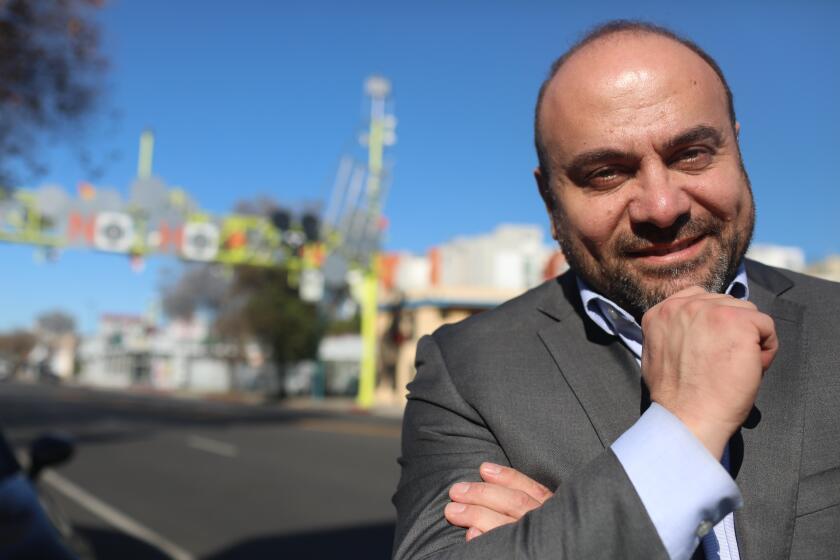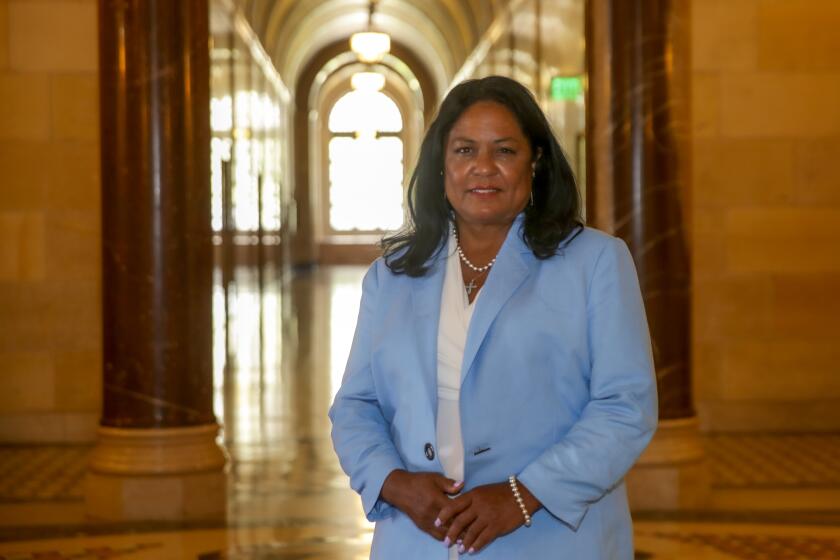LAPD should name names in officer-involved shootings
The public knows a great deal more now about a Los Angeles Police Department shooting than it did a few weeks ago. We know that officers fired more than 100 shots into and at a truck in Torrance on the morning of Feb. 7, 2013, only to discover that fleeing former LAPD Officer Christopher Dorner was not inside; instead, the truck was occupied by two women delivering morning newspapers. We know that one officer fired 28 rounds, and that officers were so poorly arrayed that they fired toward one another, adding to the confusion in the predawn darkness.
What we don’t know are the names of the officers involved. That’s because the LAPD, which once was a leading proponent of openness when it came to investigating and disciplining its officers, has in recent years quietly retreated from that history. Boards of rights, where serious discipline against officers is meted out, once were open to the public; now they are closed. The names of officers involved in serious uses of force once were routinely released; now they are often withheld.
Not all of that is the LAPD’s fault. Police unions statewide have fought hard to protect the identities of officers involved in shootings, and a case testing the question of how much information departments should release is scheduled to be heard by the California Supreme Court next month.
It is natural that police unions take the position they do on this matter: Their members of course prefer anonymity. But what’s good for those unions is not what’s best for society, nor is it even best for police departments. In the case of the Torrance shooting, protecting the identities of the officers involved prevents the department from receiving information that might come from the public. Someone outside the department may have spoken to one of these officers and learned things that would help investigators explore their actions or state of mind; by withholding the names, the department makes it more difficult for anyone with such information to understand its relevance.
More important, secrecy erodes a fundamental principle in the relationship between the public and its police. When a police officer fires a gun at a suspect, it represents a consummately public act, with the gravest possible consequences to members of the public — in this case, wounding two women who were only doing their jobs. The LAPD should release the names of the officers involved in this and all other shootings, not as punishment but as a routine acknowledgment that its work is public, and that the public has every right to scrutinize it.
More to Read
A cure for the common opinion
Get thought-provoking perspectives with our weekly newsletter.
You may occasionally receive promotional content from the Los Angeles Times.










